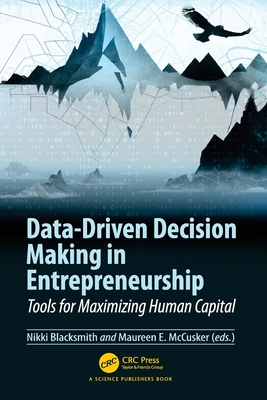

 CRC Press
CRC Press
Data-Driven Decision Making in Entrepreneurship: Tools for Maximizing Human Capital


Key Metrics
- Nikki Blackmith
- CRC Press
- Paperback
- 9781032052786
- -
- -
- Business & Economics > Human Resources & Personnel Management
- English
 Secure Transaction
Secure TransactionBook Description
Since the beginning of the 21st century, there has been an explosion in startup organizations. Together, these organizations have been valued at over $3 trillion. In 2019, alone, nearly $300 billion of venture capital was invested globally (Global Startup Ecosystem Report 2020). Simultaneously, an explosion in high volume and high velocity of big data is rapidly changing how organizations function. Gone are the days where organizations can make decisions solely on intuition, logic, or experience. Some have gone as far as to say that data is the most valuable currency and resource available to businesses, and startups are no exception. However, startups and small businesses do differ from their larger counterparts and corporations in three distinct ways: 1) they tend to have fewer resources, time, and specialized training to devote to data analytics; 2) they are part of a unique entrepreneurial ecosystem with unique needs; 3) scholarship and academic research on human capital data analytics in startups is lacking. Existing entrepreneurship research focuses almost exclusively on macro-level aspects. There has been little to no integration of micro- and meso-level research (i.e., individual and team sciences), which is unfortunate given how organizational scientists have significantly advanced human capital data analytics.
Unlike other books focused on data analytics and decision for organizations, this proposed book is purposefully designed to be more specifically aimed at addressing the unique idiosyncrasies of the science, research, and practice of startups. Each chapter highlights a specific organizational domain and discuss how a novel data analytic technique can help enhance decision-making, provides a tutorial of said regarding the data analytic technique, and lists references and resources for the respective data analytic technique. The volume will be grounded in sound theory and practice of organizational psychology, entrepreneurship and management and is divided into two parts: assessing and evaluating human capital performance and the use of data analytics to manage human capital.
Videos
No Videos
Community reviews
Write a ReviewNo Community reviews